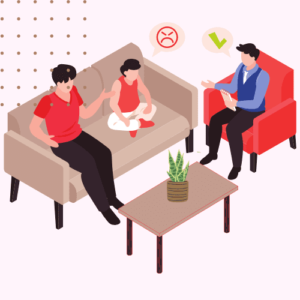
Dementia Test
Answer these simple questions to understand more about your Dementia. We share instant results and keep your information confidential.

What is Dementia Test?
Dementia assessment is a comprehensive evaluation process aimed at diagnosing and determining the severity of cognitive decline in individuals. It involves medical history review, cognitive tests, neurological exams, and sometimes brain imaging. The assessment helps identify the type of dementia, ruling out other conditions, and understanding the individual’s functional abilities. Accurate diagnosis aids in appropriate care planning and treatment strategies to manage symptoms and improve the quality of life for those affected by dementia.
Who can benefit from this Dementia Test?
Dementia assessment can benefit individuals experiencing memory loss or cognitive decline, especially older adults. It is essential for anyone showing signs of dementia-related symptoms, such as forgetfulness, confusion, language problems, or behavioral changes. Early assessment can aid in diagnosing the type of dementia and ruling out reversible causes of cognitive impairment. It enables timely intervention and appropriate support for patients and their families, leading to better management of symptoms, improved safety, and enhanced quality of life for individuals affected by dementia.


Dementia Test Accuracy
The accuracy of dementia assessment can vary depending on several factors. When conducted by skilled healthcare professionals using standardized tools and comprehensive evaluations, the accuracy is generally high. However, early-stage dementia may be challenging to diagnose accurately. Additional follow-up assessments and expertise from specialists can improve accuracy. Factors like the patient’s cooperation, underlying health conditions, and access to advanced diagnostic tools also impact accuracy. Overall, early and accurate dementia assessment is crucial for providing appropriate care and support to individuals affected by cognitive decline.
Types of Dementia Test
Cognitive Testing:
Evaluates memory, thinking, and problem-solving abilities through standardized tests.
Neurological Exam:
Assesses reflexes, muscle strength, and sensory perception to identify neurological issues.
Brain Imaging:
Utilizes MRI or CT scans to detect brain abnormalities that may contribute to dementia.
Blood Tests:
Identify potential underlying medical conditions causing cognitive decline.
Functional Test:
Assesses daily living abilities to determine the level of independence.
Genetic Testing:
Identifies specific gene mutations associated with hereditary forms of dementia.
Handling Dementia
Handling dementia can be a challenging and emotional journey, both for the person experiencing it and their loved ones. Dementia refers to a group of cognitive disorders that affect memory, thinking, and social abilities, making it difficult for individuals to perform everyday activities. While there is no cure for dementia, there are strategies and approaches that can help improve the quality of life for those affected. Here are some tips for handling dementia:
- Seek Medical Help: If you suspect someone may be experiencing dementia symptoms, it is essential to seek a professional medical evaluation. Early diagnosis can help identify the type of dementia and allow for better management and planning.
- Educate Yourself: Learn as much as you can about dementia, its progression, and available treatments. Understanding the condition can help you provide appropriate care and support.
- Create a Safe Environment: Modify the living environment to reduce potential hazards. Remove clutter, install handrails, and use safety locks to prevent accidents.
- Maintain a Routine: Establish a daily routine that provides structure and predictability. Routines can help reduce anxiety and confusion for individuals with dementia.
- Encourage Independence: While it is crucial to provide assistance when needed, allow the person with dementia to do things independently as much as possible. Offer simple tasks that match their abilities.
- Effective Communication: Communicate clearly and calmly, using simple language and short sentences. Maintain eye contact and give the person enough time to process information and respond.
- Stay Calm and Patient: Caring for someone with dementia can be frustrating at times, but it’s essential to remain patient and avoid arguments or confrontations. Take breaks when needed to manage stress.
- Stay Connected: Social interaction is vital for individuals with dementia. Encourage visits from family and friends and participate in activities that promote social engagement.
- Engage in Cognitive Activities: Stimulate the mind with activities that match the person’s cognitive abilities. Puzzles, memory games, and reminiscing about the past can be beneficial.
- Physical Exercise: Encourage regular physical activity, as it can improve mood, reduce anxiety, and promote overall well-being.
- Nutrition and Hydration: Ensure the person with dementia is eating a balanced diet and staying hydrated. Proper nutrition is crucial for their health.
- Use Memory Aids: Utilize memory aids like calendars, notes, and reminders to help the person remember important tasks and appointments.
- Consider Support Groups: Joining a support group for caregivers can provide a valuable space to share experiences, gain advice, and find emotional support.
- Legal and Financial Planning: Early on, it’s essential to handle legal and financial matters, such as setting up power of attorney and discussing end-of-life preferences.
- Self-Care: Caregiving can be emotionally and physically demanding. Make time for yourself to rest, pursue hobbies, and seek support from others.
Remember that every person with dementia is unique, and strategies that work for one individual may not work for another. Flexibility and adaptability are crucial as the condition progresses. Additionally, consider seeking guidance from healthcare professionals, such as geriatric specialists or dementia care experts, to tailor a care plan specific to the person’s needs.